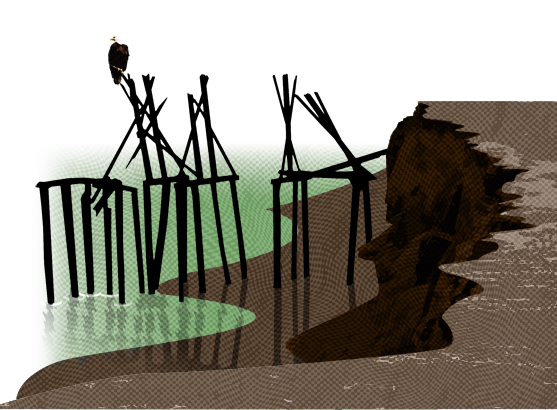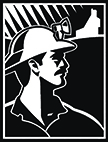
TIMELINE
Beginnings
As Lake Superior emerged from the ice age 10,000 years ago, Native Americans from the south slowly moved north. In the summers, they mined the now-exposed copper deposits of the Keweenaw Peninsula and developed a copper trading network. Fifteen hundred years ago the Ojibwa (Anishnaabe) began their migration from the East Coast to the Great Lakes.
The Ojibwa moved throughout the Lake Superior region and eventually traded with French, British, and Americans. The copper mining boom in the mid-1800s introduced a large settler population, and under an 1854 Treaty, the Ojibwa formed a reservation at the foot of Keweenaw Bay, maintaining hunting, fishing, and gathering rights over their ceded lands. By 1900, industrial copper mining and milling were firmly planted in the Keweenaw Peninsula -- mines, mills, and smelters, owned primarily by Boston industrialists, employed around 14,000workers.
1900 - 1933
The Mohawk and Wolverine mining companies built two mills at Gay on the shore of Lake Superior and employed many immigrants and their descendants. Over 30 years, the mills flushed over 37 million cubic yards of tailings from their stamp mills. The Wolverine and Mohawk Mills closed just before and during the Great Depression, leaving a large bank of black stamp sand on the shore.
1930s - 1990s
Lake Superior’s fierce storms and strong currents eroded the stamp sand bank, pushing the tailings into the lake and gradually moving them southward along the shoreline to the Traverse River. Gay residents found employment in lumbering, fishing, and the Works Progress Administration (WPA) during the Depression. The Gay School closed in 1961 and the railroad stopped running in 1964.
2000s
Migration of coarse black sands from Gay into Big Traverse Bay and the mouth of the Traverse River brought the attention of federal and state agencies. A breakwater and frequent dredging became regular remedies as the US Army Corps of Engineers investigated more lasting cures. With the survival of the Buffalo Reef fish spawning grounds at stake, in 2017, multiple interested governments banded together and secured funding to find and implement a permanent solution.




